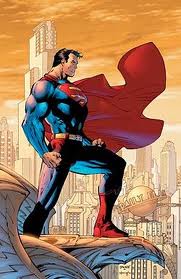Introduction
A hero has
many qualities, and those qualities are highly debated. Every single person has
his or her own views regarding heroes. As editor Ray B. Browne noted in “Profile of Popular culture”, “Heroes are created by and used to fill
the needs of individuals and society”. (Browne, 2005) It is no wonder that
everyone has a different idea of what a hero is, because everyone has different
needs. Matching heroes with popular culture is a different aspect. You have to
look at who designed the hero, if fictional, and who recognizes the hero,
whether they are fictional or real. For an example, take Eli Manning,
quarterback of the 2012 Superbowl Champions, the New York Giants. Millions of
fans love him, millions of young aspiring athletes look up to him as their
hero, however many Green Bay Packer fans might not think of him as a hero,
rather a good athlete who happened to beat them. Is Eli a hero? To some yes, to some no, but to
popular culture, yes. Eli has lifted the spirits of the state of New York’s
citizens; he has created aspirations in the minds of young athletes across the
world. He is a popular culture hero.
Superman
However,
this article is not about Eli Manning, it is about Superman. He was created by
Jerry Siegel and Joe Schuster, and made his first appearance in 1938. (DC Comics,
2012)
He was created to depict the greatest superhero of all time. In order to
understand how he has risen to be one of the biggest fictional heroes of all
time, you must understand our pop culture. Popular culture usually relates to
current trends, who is famous now, who is “in”. Because of this our culture
throws heroes to the grinder and forever forgets them. Superman is an exception
to this. He may not have to years of Hercules, but then again when is the last
time Hercules has been depicted on the big screen. Superman was created almost
seventy five years ago, and he is still going strong.
As
mentioned he is different from mythical heroes, however he does share some of
their characteristics. He is super strong, he has no equal on earth, and he has
one weakness. As stated though he is different, he is not yet a mythical hero but a popular culture hero. Mythical
heroes stand above civilization, Superman does not, and he always considers
himself no different than anyone else, and he subjects himself to the same laws
that apply to everyone else.
Movies,
video games, magazines, toys, clothing, television shows, have all be sold
featuring Superman. He is a pop culture icon and hero. Superman is also an
individual’s hero, in the heart of Jerry Siegel, co-creator of Superman.
Jerry’s father died from a heart attack after his store was robbed. Many
conspirators believe that his father was actually shot, and this was covered up.
In Superman’s first appearance he is depicted deflecting bullets of his chest. (DC Comics,
2012)
Thus Superman was created out of an individual’s need for a hero.
Insights
I continue
to learn more about heroes, popular culture, icons, and celebrities. I learn
how all of these interact with each other, and why they here. As each week goes
by I grow a deeper respect for superheroes. They have transcended past being
solely for my entertainment, and have become my reason for knowledge.

No comments:
Post a Comment